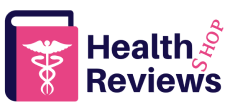The introduction of the Affordable Care Act (ACA) in 2010 brought significant changes to the healthcare industry. Since then, there have been ongoing debates about how best to reform our healthcare system. As a consumer, it can be challenging to keep up with all the developments and understand your options for coverage. In this article, we will provide you with a comprehensive guide to help you navigate the complex world of healthcare reform.
Understanding Your Options for Healthcare Coverage
One of the primary goals of healthcare reform is to increase access to affordable health insurance. The ACA introduced new rules that require insurers to cover pre-existing conditions and offer essential benefits such as preventative care. There are several ways to obtain health insurance, including through employer-sponsored plans, private insurance companies, and government programs like Medicare and Medicaid. It’s crucial to research your options carefully before choosing a plan.
The Pros and Cons of Different Types of Health Insurance Plans
There are four main types of health insurance plans: HMOs, PPOs, EPOs, and high deductible plans. Each type has its advantages and disadvantages. For example, HMOs typically have lower premiums but restrict coverage to providers within their network. PPOs offer more flexibility in terms of provider choice but tend to cost more. High deductible plans have higher out-of-pocket costs but often come with lower monthly payments.

How to Choose the Best Plan for You and Your Family
Choosing the right health insurance plan requires careful consideration of your needs and budget. First, determine what kind of coverage you need based on your medical history and lifestyle. Consider factors such as deductibles, copays, coinsurance, and maximum out-of-pocket limits. Also, check if your preferred doctors and hospitals are included in the plan’s network. Remember to compare prices from different insurers and look for any hidden fees or exclusions.
Making Sense of Healthcare Jargon
Navigating the world of healthcare can be overwhelming due to the abundance of technical jargon used by professionals. Terms like “coinsurance,” “copayment,” and “out-of-pocket maximums” may not be familiar to everyone. Take time to educate yourself about these concepts so that you can make informed decisions about your healthcare.
What is a Health Savings Account (HSA) and Should I Get One?
An HSA is a tax-free savings account designed to help individuals save money for future medical expenses. Contributions made to an HSA are deducted from your income taxes, and withdrawals are tax-free when used for qualified medical expenses. If you have a high-deductible health plan, an HSA can be a useful tool for managing your healthcare costs. However, it’s essential to assess your financial situation and healthcare needs before deciding whether an HSA is right for you.
Why Preventative Care is Important and How to Access It
Regular preventative care is critical for maintaining good health and avoiding expensive treatments later on. The ACA mandates that most health insurance plans cover certain preventive services without charging any additional fees, such as annual physical exams, vaccines, and cancer screenings. Check with your insurer to see which preventative services they cover and schedule appointments accordingly.
Managing Chronic Conditions with Healthcare Services
If you suffer from chronic conditions like diabetes or heart disease, it’s vital to manage them proactively to avoid complications. Regular doctor visits, medication management, and healthy lifestyle choices are crucial components of chronic condition management. Many health insurance plans offer specialized services for patients with chronic illnesses, such as case management and nurse hotlines.
Navigating the Healthcare System as a Senior Citizen
Seniors face unique healthcare challenges, including increased risk of chronic diseases and mobility issues. Medicare is a federal program that provides health insurance coverage for people aged 65 and older. Additionally, many states offer supplemental insurance policies called MediGap plans to fill gaps in Medicare coverage. Research your options carefully before selecting a plan, and consider consulting with a trusted advisor or family member for guidance.
Conclusion: Tips for Staying Informed About Healthcare Reform
Keeping up with healthcare reform can feel overwhelming, but staying informed is essential for making smart decisions about your healthcare. Here are some tips to help you stay current:
Sign up for email alerts from reputable news sources covering healthcare policy
Attend community events hosted by local organizations discussing healthcare reform
Use online resources like government websites and nonprofit groups to learn more about healthcare topics that interest you
Ask questions of your healthcare providers and insurance company representatives to clarify any confusing information
Remember, being an educated healthcare consumer is the key to making informed decisions about your health and wellbeing.
